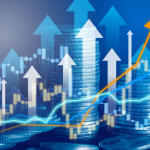Reviewed by Akhilesh Ganti
Trading on the foreign exchange market differs from investing in stocks or commodities. Due to its high liquidity, 24/7 schedule, and easy accessibility, forex trading has emerged as a popular career, especially for investors with a financial background.
Key Takeaways
- Forex is the largest and most liquid market in the world.
- A career as a forex trader can be lucrative, flexible, and highly engaging.
- Forex traders face high risks, leverage, and volatility.
See Investopedia’s picks for Best Forex Brokers.
Advantages
- Low Cost: Forex trading can have low brokerage and commission costs. Most forex brokers make profits from the spreads between forex currencies. In contrast, equity or other securities traders commonly have a brokerage structure that varies widely.
- Flexible Schedule: The forex markets are open 24/7, enabling trades at one’s convenience and advantageous to short-term traders who tend to take positions over short durations.
- High Liquidity: Compared with other financial markets, the forex market has the highest level of liquidity, which means even large orders of currency trades are easily filled efficiently without large price deviations. This helps eliminate the possibility of price manipulation and price anomalies.
- No Exchange: As an over-the-counter market operating globally, there is no central exchange for the forex market.
- Volatility: The major currencies may display high price swings. If trades are placed wisely, high volatility assists in enormous profit-making opportunities.
- Variety: There are 28 major currency pairs involving eight major currencies. Criteria for choosing a pair can be convenient timing, volatility patterns, or economic developments.
- Low Capital Requirements: Due to tight spreads in terms of pips, one can easily start forex trading with a small amount of initial capital, unlike other markets like equity, futures, or options. Margin trading with a high leverage factor (up to 50-to-1) is available for forex trades.
- Ease of Entry: There are many forex technical indicators for short-term traders and several fundamental analysis theories and tools for long-term forex trading.
Important
Due to the large size of the forex market, it is less susceptible to insider trading than some other markets, particularly for major currency pairs.
Disadvantages
- Lack of Transparency: The forex market is dominated by brokers, so investors trade against professionals. A trader may not have any control over how his trade order gets fulfilled, may not get the best price, or may get limited views on trading quotes provided only by his selected broker.
- Complex Price Determination: Forex rates are influenced by multiple factors, primarily global politics or economics that can be difficult to analyze information and draw reliable conclusions to trade on. Most forex trading happens on technical indicators, the primary reason for volatility.
- High Risk: Forex trading is available on high leverage, meaning one can get profit/loss exposure multiple times of the trading capital. Forex markets allow leverage of 50:1, so one needs only $1 to take a forex position worth $50. While a trader can benefit from leverage, a loss is magnified.
- Self-Directed Learning: In the stock market, a trader can seek professional assistance from portfolio managers, trade advisors, and relationship managers. Forex traders are completely on their own with little or no help. Disciplined and continuous self-directed learning is a must throughout the trading career. Beginners may quit during the initial phase, primarily because of losses due to limited forex trading knowledge and improper trading.
- High Volatility: Without control over macroeconomic and geopolitical developments, one can easily suffer huge losses in the highly volatile forex market. If things go wrong with a particular stock, shareholders can pressure management to initiate required changes or approach regulators.
Pros
-
Low overhead costs. Anyone can trade forex with a small investment.
-
Highly liquid, with many market participants.
-
There are many trading pairs, trading styles and analytical tools to choose from.
Cons
-
Low transparency. The biggest traders are major institutions, meaning investors are playing against the professionals.
-
Forex markets allow much higher leverage than equities markets, meaning a leveraged trader can get wiped by small fluctuations in currency prices.
-
Forex traders cannot rely on advisors or portfolio managers.
What Are the Skills Needed To Be a Forex Trader?
Perseverance, continuous learning, efficient capital management techniques, the ability to take risks, and a robust trading plan are needed to be a successful forex trader.
How Does Price Volatility in Forex Trading Differ from Equity Trading?
The 24/7 markets make it difficult to monitor prices and volatility. The best approach is to keep strict stop losses for all forex trades and trade systematically through a well-planned approach. High volatility commonly occurs during opening and closing hours in equity markets.
How Does Leverage Affect Forex Traders?
Because leverage is easily available to forex traders, loss can come quickly. Traders require a robust knowledge of leverage, an efficient capital allocation scheme, strong control over emotions, and the willingness to cut losses short.
The Bottom Line
The foreign exchange market has emerged as a lucrative opportunity for those with a financial background. With low entry requirements and markets open 24/7, anyone with a laptop or smartphone can potentially profit in the forex markets. However, those opportunities also come with high leverage and high risk.

